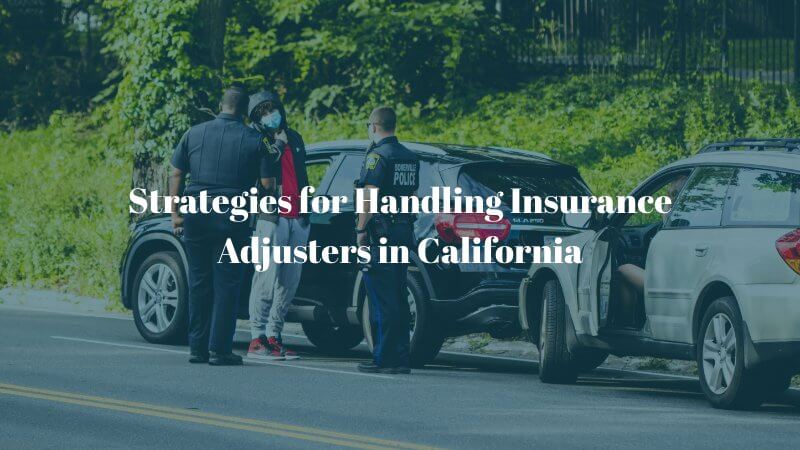The distress of a car accident in California continues during the days and weeks after the accident, as an injury victim struggles to recover their losses such as property damage, medical costs, lost income, and compensation for pain and suffering.
If you’ve been injured in a car accident in California, you’ll encounter an insurance adjuster as you make a legal claim to recover your damages. It’s an insurance claim adjuster’s job to investigate the crash, evaluate the damages you’ve suffered, and approve a settlement amount—or deny the claim. If you’ve recently had a car accident, it helps to know how to effectively deal with the insurance adjuster assigned to your case.

Part of an insurance adjuster’s job is to investigate a car accident when one of the company’s policyholders is responsible or partly at fault for an accident. Typically, the adjuster reads the police report and reviews available evidence. It’s important to have an investigator of your own on your side. An experienced car accident attorney does more than just read the police report. They’ll speak to eyewitnesses, scrutinize any evidence, consult with accident reconstruction experts, and build a compelling case to prove the other party’s fault in the accident. This is important because under California’s comparison negligence insurance system, the insurance company can reduce your payout by the percentage of your fault. This incentivizes insurers to assign you an unfair amount of fault. For instance, if you were driving five miles per hour over the speed limit, they could claim you were 20 percent at fault even if the other driver ran a red light and hit you. This would bring a $100,000 payout down to $80,000. By having an attorney on your side, your lawyer will present evidence defending your actions. For example, they might use an expert’s report to show that you couldn’t have avoided the collision even if you were driving at exactly the speed limit.
After a car accident in California, it’s very common for an insurance adjuster to call the accident victim very soon after the accident with a fast settlement offer—often before the injury victim knows the full extent of the damages they’re facing. If you sign a fast settlement agreement, it’s likely to be far less than the amount available to you. By signing the settlement agreement, you give up the right to file a lawsuit later when you have the full picture of your damages.
It’s always a good idea to hire a car accident attorney in Encino after an accident and then refer all communication with the insurance representatives to your lawyer.
During the process of your compensation claim it’s important to avoid common mistakes when dealing with the insurance adjuster assigned to your case. For example, insurance company representatives often call on recorded lines. Never agree to talk on a recorded line. Often they take an injury victim’s remarks out of context and use them against them later. A simple, “I’m feeling better, thank you,” can be construed as an admission that you are not truly injured.
Never give the insurance company authorization to review your medical records. Instead, give them access only to the medical report of your injuries. By granting medical authorization you open yourself up to an insurance adjuster examining your entire medical history to find pre-existing conditions or previous injuries they can cite as the cause of your pain or other symptoms.
Finally, avoid posting on social media until after your claim is complete and you’ve received your compensation. Photos and comments can be taken out of context and used against you.
Your attorney can give you further tips to maximize your chances of recovering full compensation for your damages.